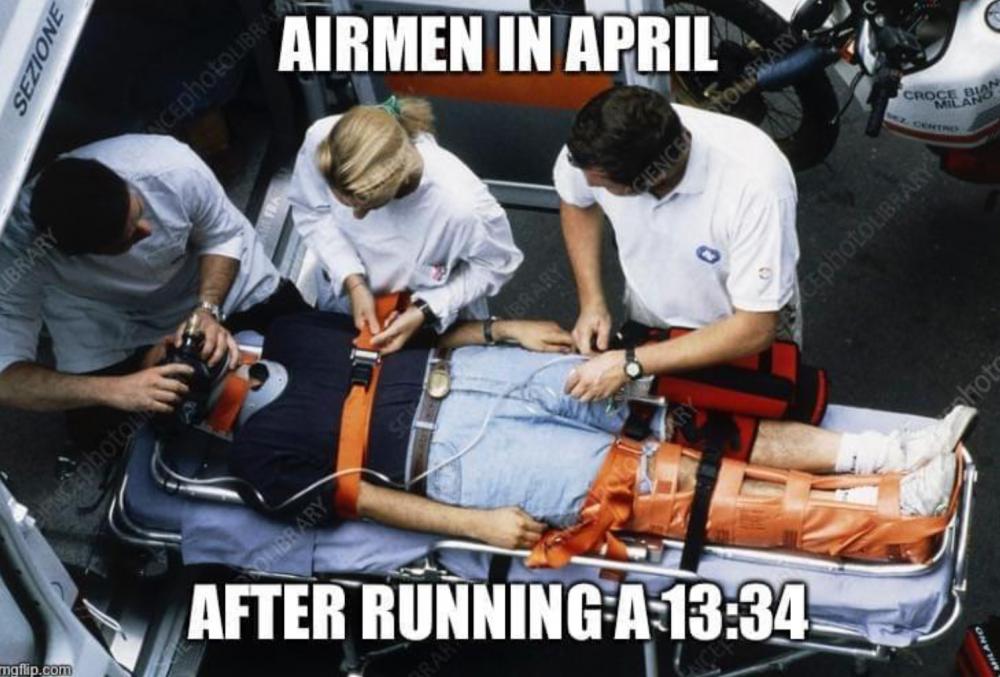I'll lead off with I agree with your last paragraph, the status quo isn't good enough, and we need to do better in discouraging abusing the system while making it available to people who need it. So I think we both want to see us get to the same end state. I will however, challenge some of your assumptions, mainly because years ago I held very similar beliefs and viewpoints you did (and that's not to say I'm right now and you're wrong, but I've questioned some of my assumptions when presented with different viewpoints I hadn't considered and it changed my opinion). You assume that the construction worker could get a job with better benefits: those are likely to be more competitive, and limited. But let's assume they have good work ethic, and don't want to be in unemployment waiting for a "good" job while taking a government handout, so they take whatever job they can to pay their bills. If they then have a workplace accident that results in their leg being crushed and subsequently amputated, then what? "Sorry bro, life sucks and you had bad luck? Thanks for your contribution to the economy in building stores/homes, good luck finding a job with one leg, hope someone donates a prosthetic leg?" Sure, there may be some workers comp available, and that may cover the initial hospital bills, but what happens long term? Being in crutches permanently isn't conducive to many low skill jobs, and while discrimination against disabled is generally illegal, an employer can usually find another reason (plausible deniability) to hire someone else without a disability, especially for low skill or entry level work. And retraining into a new field of work costs money, both for training, and to cover expenses while in training (though admittedly unemployment benefits can help bridge the gap). I agree that the welfare system should have changes to prevent abuse. But we have to address social and economic barriers to do so. Some of it is practical (those financial cliffs mentioned earlier in the thread). Some of it is learned behavior from multiple sources. I don't dispute your experience with workers in welfare. All I will say is be careful generalizing based on a small population. Maybe your assessment is correct for the overall population of people on welfare in America, but then again maybe not. The way to draw generalizations needed for policy is to study a relevant portion of that population, while controlling for other factors. If you have a minimum wage or low paying job with decent (i.e. non high deductible plans) health insurance, great. If you get sick and have to go to urgent care, that $20 copay may mean skipping meals to make ends meet, not to mention the cost of any medicines required. Referred out to specialty care? That's an extra $50 copay, and likely half a day missed from work (increasing the financial pain). Need an operation done? Hope you have the $1-3k available for your deductible and you don't have coinsurance requirements. So while they may have health insurance, you may not be able to practically use it except in an emergency, at which point it may drain any savings you have anyways. And if you don't have paid sick leave, you may just deal with the issue and show up to work anyways because you need the money to make rent. But if you keep hours to the point you remain on welfare, you end up not having to pay those medical costs, and may not have to skip means and go hungry to get medical care. You don't have to work about an emergency wiping out your work because there's nothing really to lose. So there's this painful transition point. If you can get through it and start earning more money (maybe you get a raise after 1 year of work), you can be better off than on welfare. But you've got to get through to that point, and the way welfare is set up doesn't allow for a graceful transition. Maybe an individual has tried to make that jump and failed, and it's now disincentived to try again because of their previous failure. And even middle class workers can be wiped out by a medical event despite having okay health insurance due to deductible and coinsurance requirements. Maybe this speaks more to problems in healthcare, but it's still intertwined with the welfare issue. On the behavioral point, how do we get people to shift their mindset and actions? Also consider that many factors influence how a person chooses to live: family, race, gender, friends, religion, location, culture, etc. All of which influence your values and your decisions. You could teach finances in school, though the education system has incentive to focus on standardized testing (which right now doesn't measure financial planning knowledge) for school funding. That testing focused on skills to make the individual more valuable in the workforce, not skills needed to navigate life, with the assumption that the latter will come from the parents (who may not be good examples). How do you change a social group's norms? Part of it may be showing examples of people that made changes in their life and we're able to "succeed." I used to think it was dumb for all these "firsts" for race/gender/pick you group. To some extent, it still is when it's done for purely political reasons or for virtue signaling (potentially a wrong action for a "right" reason). But if a disadvantaged group can see people from their group be successful, it can provide hope that they too can be successful and escape their current circumstances. So those "firsts" may not mean anything to me as someone outside that group, or just seem like a waste if time, but that doesn't mean it has no meaning to some people within the group. And it doesn't really cost much if anything to recognize people's accomplishments. So it's less about dividing the country based on certain group affiliations, but rather showing a group they are accepted and can succeed within the greater society. On the flip side, there's the whole crabs in a pot problem, where if someone starts to make progress escaping their circumstances, others around them pull them back down, making it harder to escape. A person trying to escape welfare may be ridiculed or cut off from their friends/family (maybe seen as being "too good" for them anymore), making that transition harder because now it is being done without a social network to support or encourage them. Do people on welfare spend money on drugs and alcohol because they are pursuing pleasure ahead of essentials (they can't budget right!), or are they using them as tools to escape their life/circumstances for a bit and take the edge off their pain for a while? Put another way, are they poor because they abuse drugs/alcohol, or do they abuse drugs/alcohol because they are poor? The answer may not be the same for everyone, but usually conservatives will assume the former (poor because of drug abuse), I know I did for a long time. It goes back to the belief that if you work hard, there's no way for you to be poor, so if you are poor, you must have a moral failing and poor work ethic. The use of drugs further reinforces the belief that the poor are immoral (regardless of if the person making that judgement also uses drugs, usually with a hand waive of something along the lines of "I've earned it" and the poors are just being financially irresponsible). Compare the response to prescription opioid abuse vs heroin abuse: one is predominantly abused by wealthier people and viewed as them needing therapy to address their underlying issues (get them medical care, not jail time), and the other is abused by poorer people who are breaking the law to get high and should be punished for breaking the law since they should know better (give them jail time, not medical care). Plus, poor people on welfare likely won't have access to treatments for depression, so they self medicate with whatever is available and cheap. I will say that there are lots of good charities out there that fill some of the gaps our government doesn't cover. And a lot of these issues with being poor are community issues. But I think government money, spent wisely, can help enable charities and communities be more effective in addressing problems.












